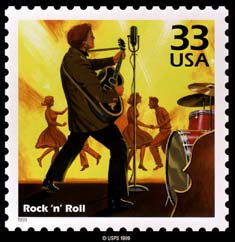 Inductions into societies can be a strange task and a bit awkward at times, especially if the category is music, musicians and the various players within.
Inductions into societies can be a strange task and a bit awkward at times, especially if the category is music, musicians and the various players within. So when this year’s Rock-n-Roll’s Hall Of Fame inductee list was unveiled nearly a week ago, it seemed politics played a role in getting a jazz musician into the wrong place, a place not fit for jazz musicians, rather established rock-n-roll artists. It’s a place strictly for rock-n-roll musicians; at least I thought it was.
The musician I am talking about of course is the one and only, late and great Miles Davis. I’m not against having Miles Davis, going in, in fact I’m happy he’s being inducted, but it seems a little odd that he’s going into a society that is strictly designed for a generic format.
Sure, some musicians transcend genres far and wide, but he never did go too rock-n-roll, other than perhaps his work he did with Prince toward the end of his life.
Putting Miles Davis into the Rock-n-Roll Hall Of Fame is about as smart a move as it was for the National Academy of Recording Arts and Sciences (NARAS), back in 1988 when it gave the musical act Jethro Tull a Grammy award for “Best Hard Rock/Metal Performance, Vocal or Instrumental” shutting out real metal bands like Metalica. It almost seems ludicrous or hypocritical.
Also inducted into the hall this year are The Sex Pistols, one of the most anti-industry, anti-music bands ever; they disdained the business, let alone their own label EMI (Capitol), thankfully they recorded one album, plus there are tons of available bootlegs to hear their work. So for them to be part of the class of 2006, seems absolutely insane!
Then of course other 2006 inductees include Black Sabbath, Lynyrd Skynryd and Blondie, who are miscategorized as “new wave,” the industry’s safe term for pre-alternative 1980s music or safe way of categorizing early punksters.
According to the Hall Of Fame’s website, the history of the inductee process works like this: “Leaders in the music industry joined together in 1983 to establish the Rock and Roll Hall of Fame Foundation. One of the Foundation’s many functions is to recognize the contributions of those who have had a significant impact on the evolution, development and perpetuation of rock and roll by inducting them into the Hall of Fame…”
“Non-Performers-Songwriters, producers, disc jockeys, record executives, journalists and other industry professionals who have had a major influence on the development of rock and roll…”
“Early Influences-Artists whose music predated rock and roll but had an impact on the evolution of rock and roll and inspired rock’s leading artists (The special selection committee elects the inductees in the Non-performer and Early Influences categories)…”
“Side Men-This category was introduced in 2000. It honors those musicians who have spent their career out of the spotlight, performing as backup musicians for major artists on recording sessions and in concert. Though they often play a key role in the creation of memorable music, the public rarely knows them by name. A separate committee, composed primarily of producers, selects the inductees in this category…”
Apparently, musicians, industry professionals & journalists vote on the hall nominations. I almost have to wonder if perhaps the journalists have been writing too hard lately, comparing bands to each other, everybody’s style to everyone other style than can be named in the universe.
Music is music. Bands are bands. They should each have their own unique style. They shouldn’t have to be compared to other performers. But, as a semi-retired journalist, I know this isn’t always going to be the case, because writers of all size, determination and origin, need styles to compare to as a basis for their criticism, which is understandable to a degree, but does it have to be every single time? I mean how many comparisons of The Beatles, The Rolling Stones, U2, Dave Matthews and other super-groups must new bands have to be measured against just to sell records?
There shouldn’t be any comparisons.
As jazz saxophonist great Ornette Coleman told me a few years ago, it wasn’t important to who he was, what counted most, was, that “it’s the music man!”

No comments:
Post a Comment